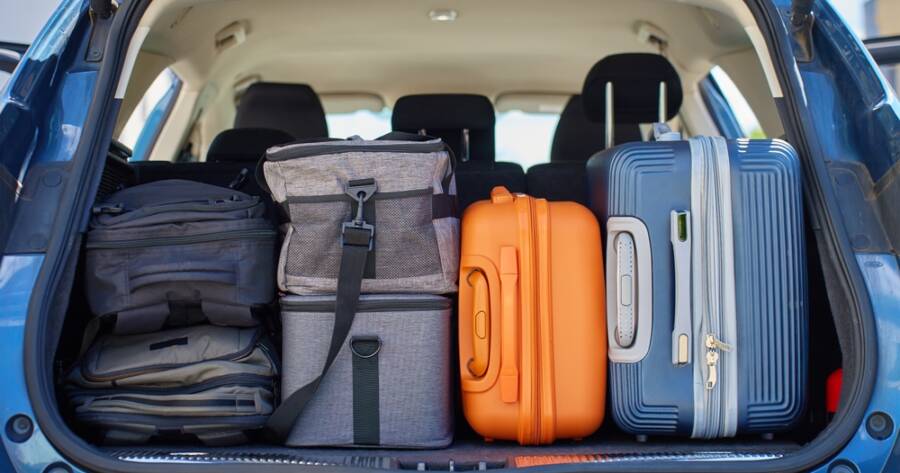Fuel prices fluctuate, but the strain on your wallet often feels the same. While most advice focuses on altering driving habits, there are other effective ways to cut fuel costs without changing how you drive. Smart maintenance, strategic planning, and a few small adjustments can stretch every gallon further. With mindful care and a few behind-the-scenes tweaks, you can improve mileage, protect your vehicle, and keep more money in your pocket—no lifestyle overhaul required.
Keep Tires Properly Inflated
Tire pressure plays a major role in fuel economy. Underinflated tires increase rolling resistance, forcing your engine to work harder and consume more fuel. Checking tire pressure once a month ensures that each tire performs efficiently and evenly. Most vehicles list the ideal pressure inside the driver’s door frame or in the owner’s manual—sticking to those numbers can improve mileage by up to three percent.
Proper inflation also enhances safety and tire longevity. Worn or unevenly inflated tires not only waste gas but can lead to premature tread wear and poor handling. Investing a few minutes with a tire gauge or an air compressor pays back in smoother rides and lower fuel costs, all without changing how or where you drive.
Maintain Engine Health with Regular Tune-Ups
An engine running below peak efficiency burns more fuel. Replacing spark plugs, air filters, and fuel filters at recommended intervals ensures cleaner combustion and better mileage. Dirty filters restrict airflow, causing your engine to compensate with more fuel intake. Keeping up with maintenance improves power and saves gas without affecting your driving style.
Oil changes are equally important. Using the correct grade of motor oil reduces friction and helps your engine operate smoothly. High-quality synthetic oils can even improve efficiency slightly compared to conventional blends. A well-maintained engine doesn’t just run better—it uses every drop of fuel more effectively, keeping your gas money working harder for you.
Reduce Extra Weight and Drag
The more your vehicle carries, the more energy it needs to move. Every additional 100 pounds can lower fuel economy by about two percent. Removing unnecessary items from your trunk, back seat, or roof rack helps lighten the load. Simple decluttering—like taking out sports gear, tools, or boxes you rarely use—reduces strain on your engine and improves gas mileage naturally.
External accessories like roof boxes, bike racks, or cargo carriers also create aerodynamic drag, especially at highway speeds. When not in use, remove them to help your car glide more efficiently through the air. These simple changes don’t require driving slower or less—they just make your existing trips easier on your fuel tank.
Choose the Right Fuel and Fluids
Using the right type of fuel recommended by your manufacturer prevents waste and ensures optimal performance. Premium gasoline doesn’t always mean better results—if your car is designed for regular, using higher octane won’t improve mileage. Sticking to what’s specified helps you save money at the pump without sacrificing engine health.
Keeping fluids at proper levels also affects fuel economy. Low coolant or transmission fluid can make the engine work harder. Even ensuring clean motor oil contributes to smoother internal motion. Regular fluid checks are simple, inexpensive, and often overlooked ways to maintain efficiency without any change to your routine.
Plan Errands and Trips Efficiently
While you may not want to adjust your driving style, you can still be strategic about how and when you drive. Combining errands into one outing instead of multiple short trips keeps your engine warm and reduces fuel use. Cold starts are less efficient, so grouping activities saves gas and time simultaneously.
Additionally, using navigation apps that display real-time traffic conditions helps you avoid unnecessary idling and detours. When possible, choose routes with fewer stoplights or steep inclines. Even with the same destinations and frequency of driving, smarter trip planning allows you to cover more ground on less fuel—efficiency built right into your normal schedule.
Efficiency Without Effort
Saving on gas doesn’t require strict driving techniques or constant monitoring—it’s about awareness and upkeep. Proper maintenance, reduced weight, and thoughtful planning all work quietly behind the scenes to stretch every gallon. Each small improvement compounds over time, making your vehicle more efficient and your budget more balanced. By treating your car with a little extra care, you’ll enjoy the same smooth rides—just with fewer stops at the pump and more savings in your pocket.

